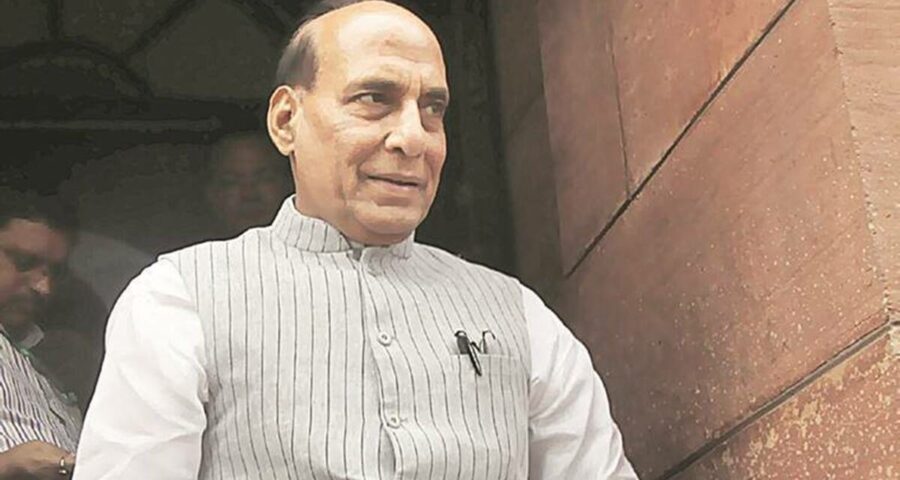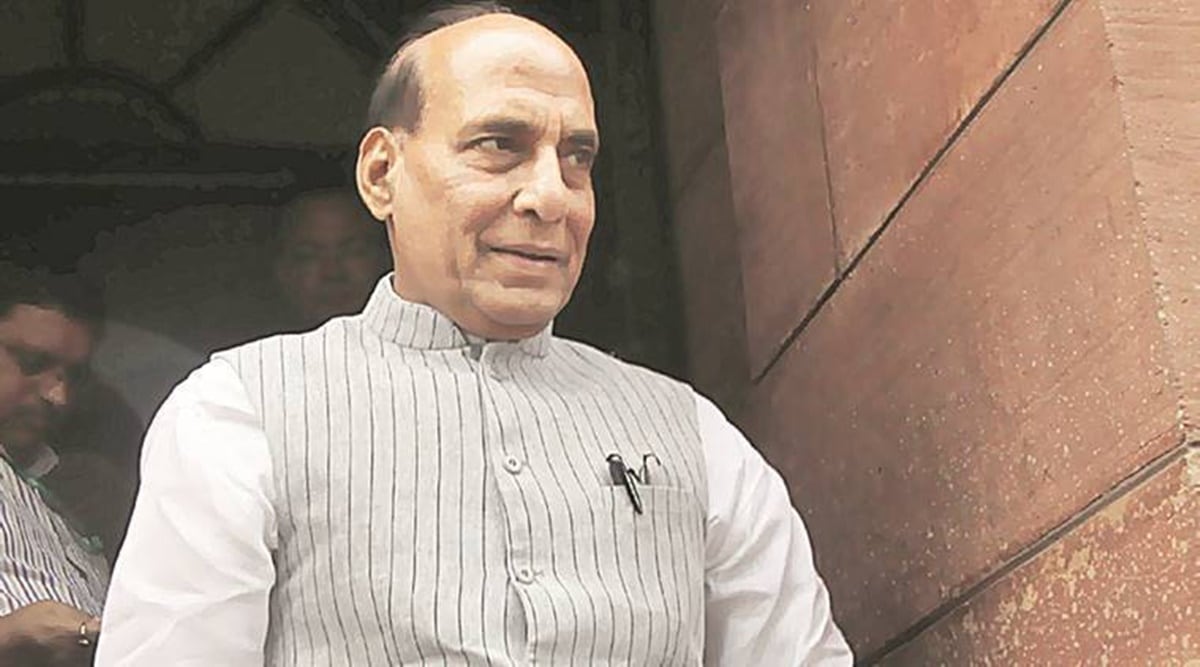Singh was speaking on government reforms at the Indo-US Economic Summit.
Defence Minister Rajnath Singh on Wednesday defended the three farm laws passed earlier this year, saying that they will not only increase the income of farmers but will also strengthen India’s food security.
Singh was speaking on reforms undertaken by the government at the Indo-US Economic Summit. He said, “There was a need for agricultural reforms for the past many decades, but the previous governments were unable to do the kind of work that should have been done. But our government took a bold decision and passed three new agricultural laws in Parliament, because of which the growth potential in the agricultural sector can be fulfilled. And because of these agricultural laws while the Indian farmers will become economically strong and their incomes will go up, it will also strengthen country’s food security.”
The minister also spoke about other reforms taken by the government as he invited the American industry to invest in India. He said labour reforms “which was not thought about for many years, has been simplified at the behest of our Prime Minister” and the “several dozen labour laws” have now been “compressed into only four sets of codes”.
Singh said that the “doors are open for FDI now” and said that the government has “formulated progressive and investor friendly tax policies”. He mentioned that the retrospective taxation has been removed, and added “by doing this we have rectified the mistake of previous governments”.
Speaking about economic growth, he said due to the steps taken by the government “economic activities” are “back on track” and “where there was a 24 per cent contraction in the growth last year, a jump of 20 per cent has also been seen in the first quarter of this year”. Calling it a “V shape recovery” he said that it is a “sign of sound economic fundamentals of India”.
He admitted that “though, along with the bounce back, it also has low base effect but still the figure assures us that India has bounced back quicker and better compared to other countries”. He said India is expecting a “double-digit growth” in the current financial year, but the “real challenge will be to maintain a healthy growth rate of 7-8 per cent in the subsequent years”.
He said India’s economic ties with the US “have been very robust for decades, particularly since Indian economic reforms instituted in the 1990s” and “significantly, even during the years of Cold War, when Indian and the US differed on many political issues in international affairs, the trade and investment relations were significant”.
The US, Singh said, was the “largest foreign investor in India, and also was the largest trade partner of India”.
“Economic and technological cooperation between India and the United States became stronger in the post-Cold War era, much stronger during the global war against terrorism and still more robust alongside Indo-US strategic partnership,” he said.
While the pandemic “has brought newer challenges in terms of disruption to supply chains, downturn in industrial activities, negative growth in travel and tourism industry and there is no doubt Indo-US cooperation will go a long way to restore normalcy and further boost economic dynamism,” Singh said.
The Indo-US relations have progressed in the last 5-7 years, he said, noting that it is not just a strategic partnership, “but a lot more than that” as the two countries have a “comprehensive global strategic partnership, based on mutual trust and mutual interests”.
“Whether it is economy or politics, social or defence, data or energy, the countries have moved forward in all fields,” he said.
As India has pledged to become self-reliant, Singh said, this is not just a big opportunity for Indian companies, but he called it a “platinum opportunity for foreign industries especially US based-industries”.
He also mentioned the several reforms taken by the government to boost defence manufacturing and said that the government has set a target of business worth Rs 1.75 lakh crore in the defence and aerospace sector by 2024 to achieve the twin objective of self-reliance and exports.
Source: Read Full Article


